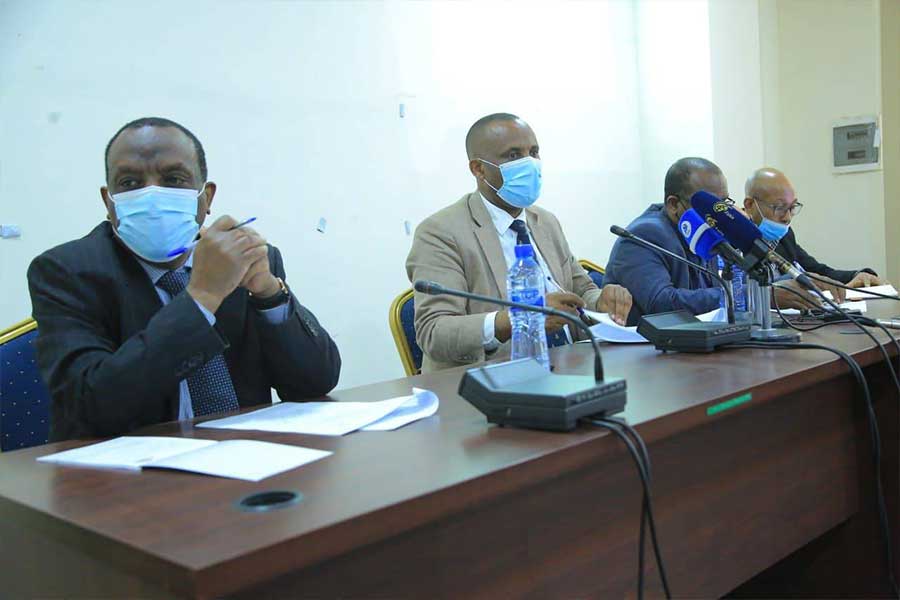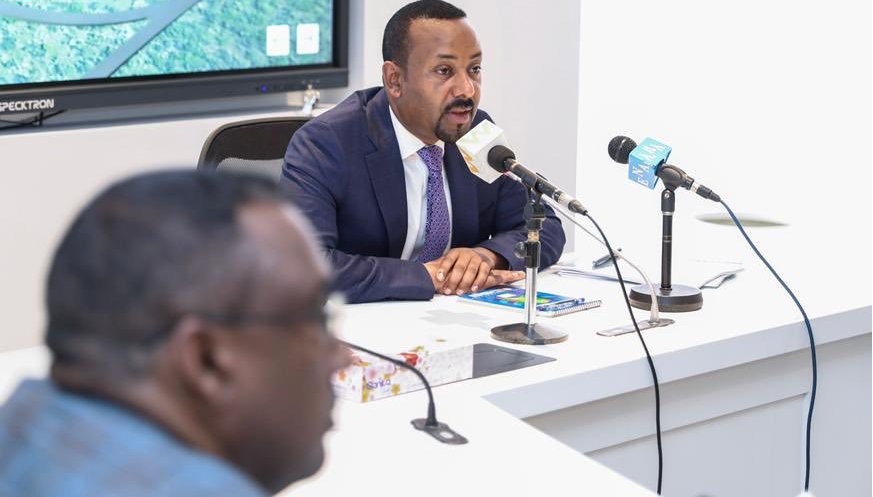
Fortune News | Dec 26,2020
A new task force formed to revamp the tax regime of the nation has begun operations with the primary aim of increasing tax revenue.
The task force started operations two weeks ago and is studying and reviewing prior assessments and studies prepared for the taxation system in Ethiopia. The new body is tasked to reform the tax system in the country and will focus on revising investment incentives.
Led by Eyob Tekalign, state minister of Finance in charge of budget, the task force was formed with the recommendation of the Macroeconomic Committee, chaired by Prime Minister Abiy Ahmed (PhD).
"It has been a long-standing issue but has been pushed to the front with the goal of increasing domestic revenue mobilisation," said a source close to the case.
In the current fiscal year, the Ministry of Revenues plans to cover 68pc of the total budget of the nation, 346.9 billion Br, from tax revenue, of which 213.9 billion Br is expected to be generated from domestic tax revenue sources. The plan, despite the performance history of the Ministry in the past fiscal year that fell 50 billion Br short of the targeted tax revenues, is one-third of the target.
The review will mainly focus on tax holidays, exemption and incentives that are believed to be mismanaged and abused.
"The revision will convert these privileges to be performance-based," the same source told Fortune.
With the aim of encouraging both local and foreign investments, incentives that include tax exemptions and holiday periods are granted to investors based on the remoteness of their investment from the capital. Investments in areas with slow economic activities and infrastructure development get over a decade and a half of tax holidays, including a 100pc tax exemption from customs duties.
"There is no other country like Ethiopia that gives excessive investment incentives," said Adanach Abebe, minister of Revenues, last week while listing the factors that led her office to have a poor performance on tax revenue collection.
For the past five years, total merchandise worth 400 billion Br were imported to the country with duty-free privileges, according to data from the Ministry of Revenues.
Different studies and research have also disclosed that these packages are mismanaged and exposed to corruption and maladministration.
An assessment carried out by the Federal Ethics & Anti-Corruption Commission last March reveals that the country’s duty-free incentives and tax exemptions of nearly one-third of the business transactions sampled were open to corruption.
For the assessment, the Commission sampled 433 businesses in Addis Abeba and Dire Dewa, which received investment incentives.
Import of excess duty-free goods beyond the value allowed by the regulations; abusing the privileges by importing non-duty free items; selling the products imported through these privileges to third parties; and the transfer of these rights between businesses without using the proper channels, are among the findings of the Commission related to abuse of these privileges.
Although the government has planned to bump up the share of taxes to GDP by one percent annually, the ratio stood at 12.7pc, which is well below the Sub-Saharan Africa average of 18pc. By the end of next fiscal year, which will also be the end of the second edition of the Growth & Transformation Plan (GTP), the tax Authority plans to push the rate to 17.2pc.
This year, the Ministry of Revenues will work on aggressively narrowing the budget deficits by lessening uncollected taxes, according to Abebech.
"We targeted to reduce the budget deficit to two percent by the end of GTP II from the current three," she said.
Last year, the Ministry of Finance with the assistance of the World Bank began a study on the administration of tax holidays and other exemptions in the country. And just a couple of months ago the Finance Ministry introduced a new procedure that compels public institutions to submit their quarterly reports on investment incentives they grant investors. The reports will be compiled by the Ministry and be presented to parliament to ensure transparency.
Yohannes Woldegebriel, a tax law expert who was a prosecutor of the former Ethiopian Revenues & Customs Authority, believes these moves alone might not solve the problem, which he describes as deep-rooted.
"Building institutional structure and capacity in the Ministry of Revenues should also be considered," Yohannes said.
Yohannes believes that the former deliberate moves of disarming the institution were the major problem for failing to meet the targeted revenue collection.
"The dissolving of Customs Police led to the abuse of power and expansion of tax evasion," Yohannes said. "Regional customs offices were also empowered in granting these privileges, another cause for abuse."
Yohannes also fears the new changes - to be made by the task force- could create inconveniences for real investors.
PUBLISHED ON
Dec 10,2018 [ VOL
19 , NO
972]

Fortune News | Dec 30,2023

Fortune News | Aug 10,2019

Radar | Oct 23,2018

Editorial | Apr 01,2023

Radar | Aug 01,2020

Dec 22 , 2024 . By TIZITA SHEWAFERAW
Charged with transforming colossal state-owned enterprises into modern and competitiv...

Aug 18 , 2024 . By AKSAH ITALO
Although predictable Yonas Zerihun's job in the ride-hailing service is not immune to...

Jul 28 , 2024 . By TIZITA SHEWAFERAW
Unhabitual, perhaps too many, Samuel Gebreyohannes, 38, used to occasionally enjoy a couple of beers at breakfast. However, he recently swit...

Jul 13 , 2024 . By AKSAH ITALO
Investors who rely on tractors, trucks, and field vehicles for commuting, transporting commodities, and f...

Nov 1 , 2025
The National Bank of Ethiopia (NBE) issued a statement two weeks ago that appeared to...

Oct 25 , 2025
The regulatory machinery is on overdrive. In only two years, no fewer than 35 new pro...

Oct 18 , 2025
The political establishment, notably the ruling party and its top brass, has become p...

Oct 11 , 2025
Ladislas Farago, a roving Associated Press (AP) correspondent, arrived in Ethiopia in...